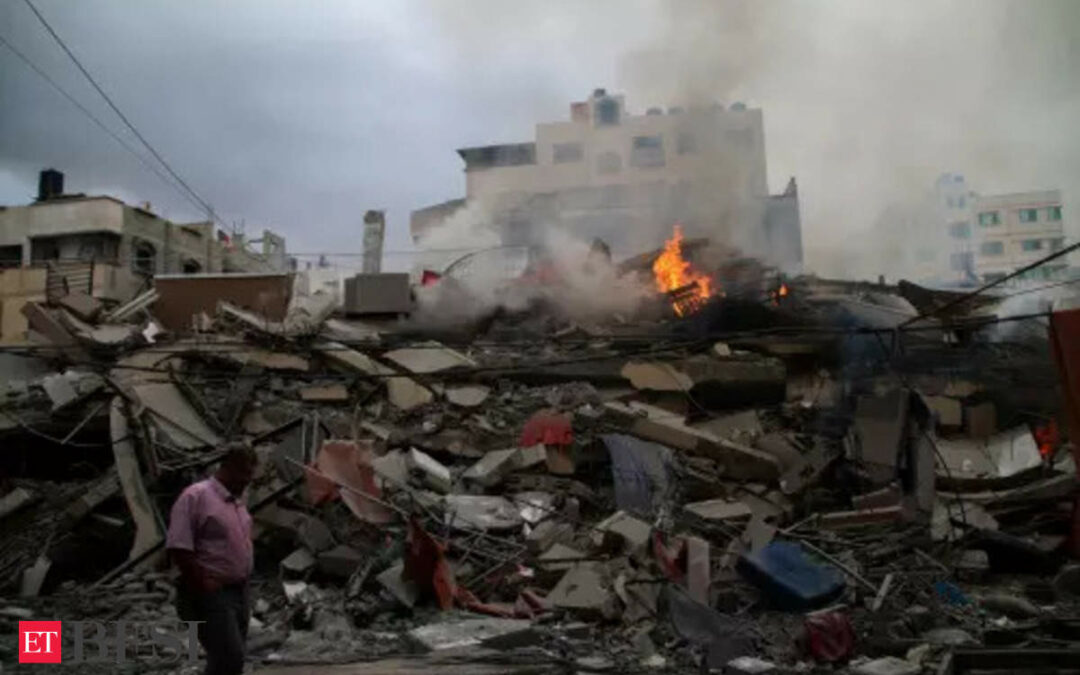New Delhi: The government is closely monitoring the conflict between Israel and Hamas, as it assesses the potential impact on multiple fronts, including oil price rise, capital outflows and a further strengthening of the dollar, as investors could flock to safe-haven assets in case of a wider conflagration, a senior finance ministry official said. However, the conflict doesn’t yet pose any major threat, as the country’s macro fundamentals remain strong, he added.
After panic signals on Monday, stocks rebounded on Tuesday, brent crude oil shed some gains and the rupee partly recovered and remained only a tad lower against the greenback than the October 6 (pre-war) level, as markets began to gauge the precise impact of the conflict in the absence of any fresh trigger point.
“At the moment, we are closely watching the situation, which is fluid. We are assessing all scenarios in our analysis, as we always do. But there is no major economic threat to India at this point and the country is on a strong footing to weather any such crisis,” the official told ET.
Unless other West Asian countries join the conflict, widening the war theatre, the impact on India could be minimal and even the global oil price gains could be limited, the official said.
However, if the war stretches on, it could complicate efforts by the government and the central bank to tame inflationary risks potentially emerging from higher oil prices and a stronger dollar that typically makes imports more expensive, he indicated.
The official, however, added that “we haven’t reached that stage” and the dollar hasn’t yet witnessed any wild surge.
India’s retail inflation eased to 6.83% in August from a 15-month high of 7.83% the previous month, but still remained above the upper end of the central bank’s 2-6% tolerance level.
Nevertheless, the latest conflict has added to uncertainties already caused by the Ukraine war and threatened oil prices just when there was a respite, he said.
Brent crude oil futures had posted their sharpest weekly losses since March in the week through October 6 to $84.6 per barrel. After the September 7 Hamas attack, the prices jumped over 4% on Monday to $88.2, before easing on Tuesday.
The BSE Sensex, which slid 0.73% Monday, ended 0.87% higher Tuesday.
As for the dollar movement, analysts await further cue from the US Federal Reserve on interest rates, Fed minutes on Wednesday and US inflation data on Thursday to better assess the situation.











